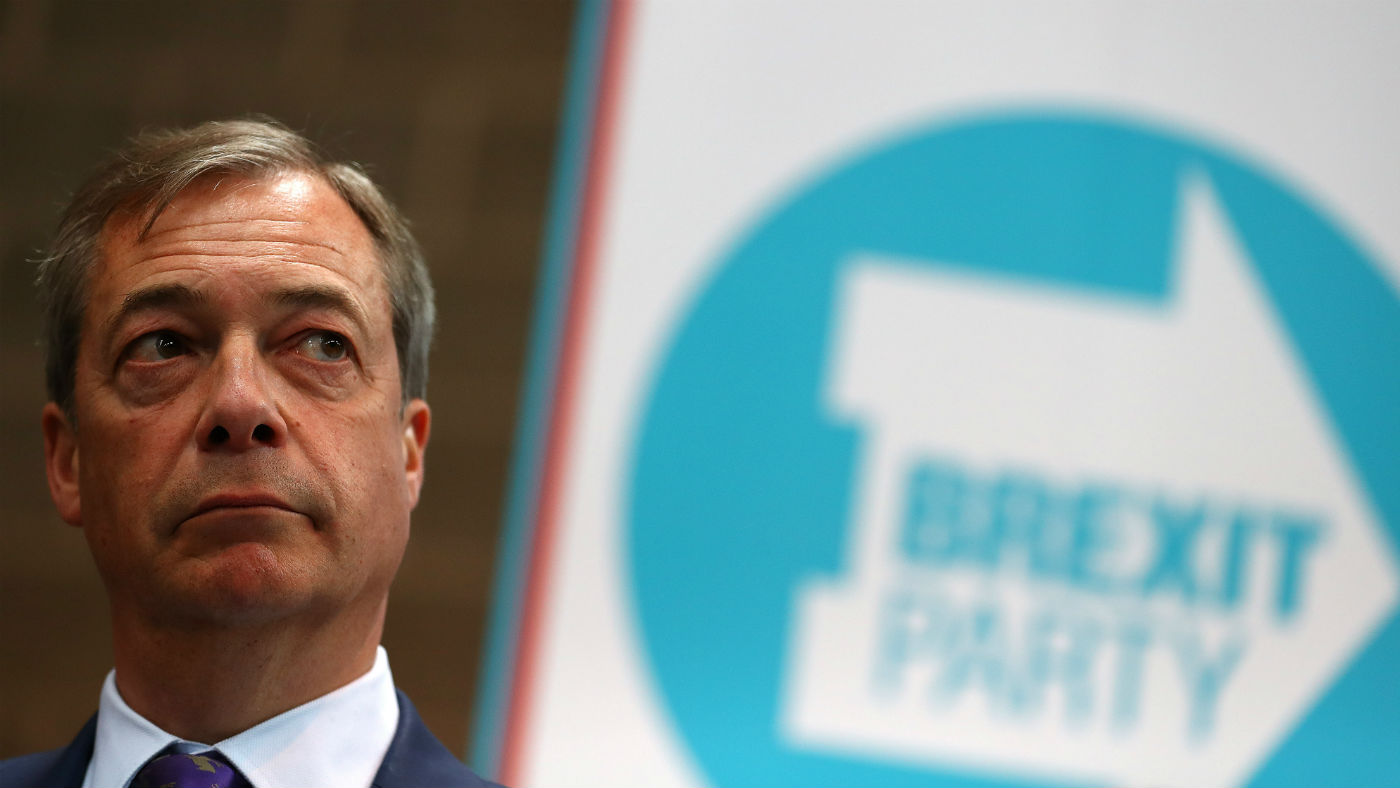Where does Brexit Party funding come from?
Nigel Farage insists new party does not accept foreign currency as Electoral Commission opens investigation

A free daily email with the biggest news stories of the day – and the best features from TheWeek.com
You are now subscribed
Your newsletter sign-up was successful
The Electoral Commission has defended its decision to visit the Brexit Party’s offices to review how the party receives funding, amid an increasingly acrimonious row about its finances.
The elections watchdog announced it was looking into the party’s donations after former prime minister Gordon Brown raised concerns over the legality of its funding.
Brown said there were clear risks that democracy was being damaged if the Brexit Party, which is predicted to attract the highest share of the vote in Thursday’s European Parliament elections, was allowed to accept foreign “undeclared and untraceable” donations via PayPal.
The Week
Escape your echo chamber. Get the facts behind the news, plus analysis from multiple perspectives.

Sign up for The Week's Free Newsletters
From our morning news briefing to a weekly Good News Newsletter, get the best of The Week delivered directly to your inbox.
From our morning news briefing to a weekly Good News Newsletter, get the best of The Week delivered directly to your inbox.
Parties are not obliged to declare political “gifts” of under £500 , and anyone making such donations is not required to verify that they are UK citizens. It is an offence, however, to try to evade controls on donations by making a series of small donations.
Nigel Farage has insisted his Brexit Party is funded largely by ordinary voters paying £25 each to become registered supporters and has insisted his party does not accept donations in foreign currency.
However, “his comments about foreign currency do not directly address concerns about foreign donations”, says The Guardian.
The newspaper says the a report last year by the Electoral Commission “recommended tighter controls to ensure money from foreign donors is not used in UK elections and referendum campaigns”.
A free daily email with the biggest news stories of the day – and the best features from TheWeek.com
Speaking to LBC the former Ukip leader instead went on the offensive, accusing the watchdog of acting “in bad faith” and "interfering in the electoral process” and even suggested there might be collusion between the Electoral Commission and Gordon Brown.
“I’m certain of it – I’m certain the establishment are working together,” he told the BBC.
Following a string of scandals around the funding of pro-Brexit campaign groups, including Farage-backed Leave.EU “there is an understandable degree of suspicion that the Brexit Party might be tempted to bend, if not break, the strict limitations on political donations” writes Tom Harris in the Daily Telegraph.
However, in this case, “as a believer in cock-up rather than conspiracy, this looks like a fine example of poor judgment and even worse timing, playing into the hands of those who see state-led conspiracies around every corner”, he adds.
The party has already become embroiled in yet another funding row after Channel 4 News confirmed it had been banned from all party events, after an investigation by the news body revealed Farage had been personally bankrolled to the tune of £450,000 by former Ukip donor Aaron Banks, who himself has faced questions about where his money comes from.
The European Parliament's advisory committee has said it will look into whether Farage broke rules by accepting funding from campaigner Banks.
“The [Channel 4 News] ban is likely to prompt questions for the party, which is ahead in polls for this week's European Parliament elections, about transparency and media scrutiny,” says The Independent.
“Ironically,” writes Harris, the Electoral Commissions decision “plays into Farage’s hands and helps burnish his credentials, not only as a political outsider (which he’s not) but also as the plucky victim of an establishment that sees him as a threat. In this last regard, he undoubtedly has a point.”